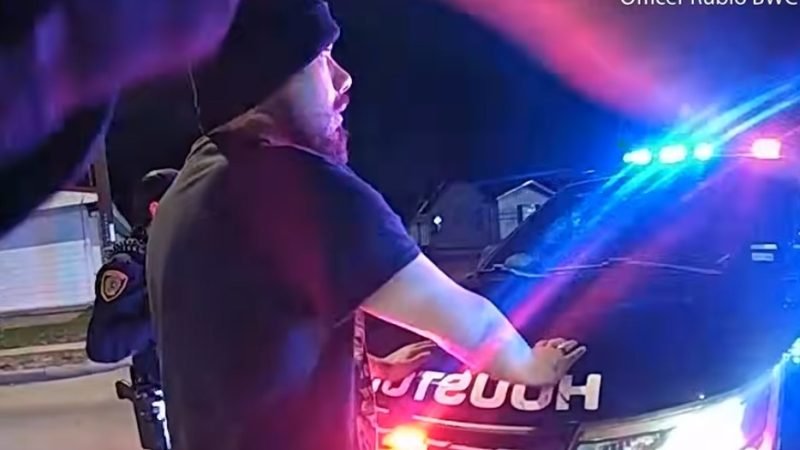Paxton wins against Big Tech, takes on General Motors, CenterPoint
(The Center Square) – In addition to suing the Biden administration on a range of issues from transgender policies to lizards in west Texas, Attorney General Ken Paxton has taken on big tech and won, and is now taking on General Motors and CenterPoint Energy.
In the past two weeks, his office has sent out a flurry of announcements touting Texas’ ongoing commitment to challenge monopolies, invasive technologies, waste and misuse of taxpayer money and the “weaponization” of Biden administration policies.
This week, Paxton sued General Motors for its alleged “false, deceptive, and misleading business practices related to its unlawful collection and sale of over 1.5 million Texans’ private driving data to insurance companies without their knowledge or consent.”
The lawsuit was filed in the District Court of Montgomery County against General Motors LLC and ONSTAR LLC. It follows a broad data privacy and security investigation his office launched in June to determine if companies were violating privacy protection laws. The investigation was launched into several car manufacturers in response to allegations that massive amounts of driver data was being collected and sold to third parties.
“Our investigation revealed that General Motors has engaged in egregious business practices that violated Texans’ privacy and broke the law. We will hold them accountable,” Paxton said. “Companies are using invasive technology to violate the rights of our citizens in unthinkable ways. Millions of American drivers wanted to buy a car, not a comprehensive surveillance system that unlawfully records information about every drive they take and sells their data to any company willing to pay for it.”
According to the complaint, General Motors installed technology in most 2015 model year or newer vehicles in order “to collect, record, analyze, and transmit highly detailed driving data about each time a driver used their vehicle” and then sold the information to at least two companies. The data was then used to generate “Driving Scores” about GM customers that was sold to insurance companies.
When purchasing the vehicles, buyers were reportedly compelled to enroll in products like OnStar Smart Driver and told if they didn’t their vehicle’s safety features would be deactivated. By doing so, “General Motors deceived many of its customers,” Paxton said. Customers were never told that when enrolling in GM products that data about them and their vehicle was being collected and sold without their knowledge or explicit consent.
Paxton also recently announced major wins in lawsuits that Texas launched against tech giants Google and Meta.
In 2020, former President Donald Trump’s Department of Justice and 11 state attorneys general sued Google alleging it was engaging in anticompetitive and exclusionary practices that eliminate competition for internet searches and search advertising. “Google’s illegal conduct has allowed it to dominate the search industry by requiring exclusivity from business partners and avoiding competition on the merits while shielding itself from competitors who might threaten its market share,” Paxton said. At the time, Google controlled nearly 90% of all search queries in the U.S. and nearly 95% on mobile devices.
Four years later, Google lost, delivering “another major win against Big Tech,” Paxton said. The U.S. District Court for the District of Columbia ruled earlier this month that Google’s anticompetitive business practices and monopoly violated the Sherman Act. The court ruled that Google engaged in illegal conduct to dominate the online search services industry and facilitated anticompetitive practices like requiring exclusive distribution agreements designed to undermine competition and solidify its monopoly.
“After having carefully considered and weighed the witness testimony and evidence, the court reaches the following conclusion: Google is a monopolist, and it has acted as one to maintain its monopoly. It has violated Section 2 of the Sherman Act,” the court held.
This was not Texas’ only win against Big Tech. Paxton also defeated Meta in a lawsuit alleging it captured personal biometric data of millions of Texans without their permission. Texas and Meta entered into a $1.4 billion settlement agreement, representing the largest settlement ever obtained by an action brought by a state.
It’s also the largest privacy settlement an attorney general has ever obtained, dwarfing a $390 million settlement 40 states reached with Google in 2022.
The Meta lawsuit was the first filed and the first settlement reached after a new state law, the Capture or Use of Biometric Identifier Act, went into effect. The historic settlement “serves as a warning to any companies engaged in practices that violate Texans’ privacy rights,” Paxton said.
Paxton also announced this week that his office launched an investigation into CenterPoint Energy after a state Senate hearing uncovered numerous failures and potential fraud or misuse of taxpayer funds related to CenterPoint’s preparation or response to Hurricane Beryl. The Category 1 storm left Houston area residents without power for nearly two weeks, resulting in multiple lawsuits alleging negligence.
Lawmakers also said extended power outages were preventable and unacceptable. Lt. Gov. Dan Patrick directed the Public Utility Commission to require the energy giant to repay $800 million for unused generators that were billed to ratepayers. Abbott instructed CenterPoint to implement a range of changes, resulting in it reversing a request to increase consumer rates to cover its costs associated with its failed response.
The OAG is looking into potential violations of Texas law in response to allegations that CenterPoint may have caused “significant harm to Houston residents, including rate increases, outages, and lengthy delays in restoring power” as well as allegations of “fraud, waste, and improper use of taxpayer-provided funds.”







